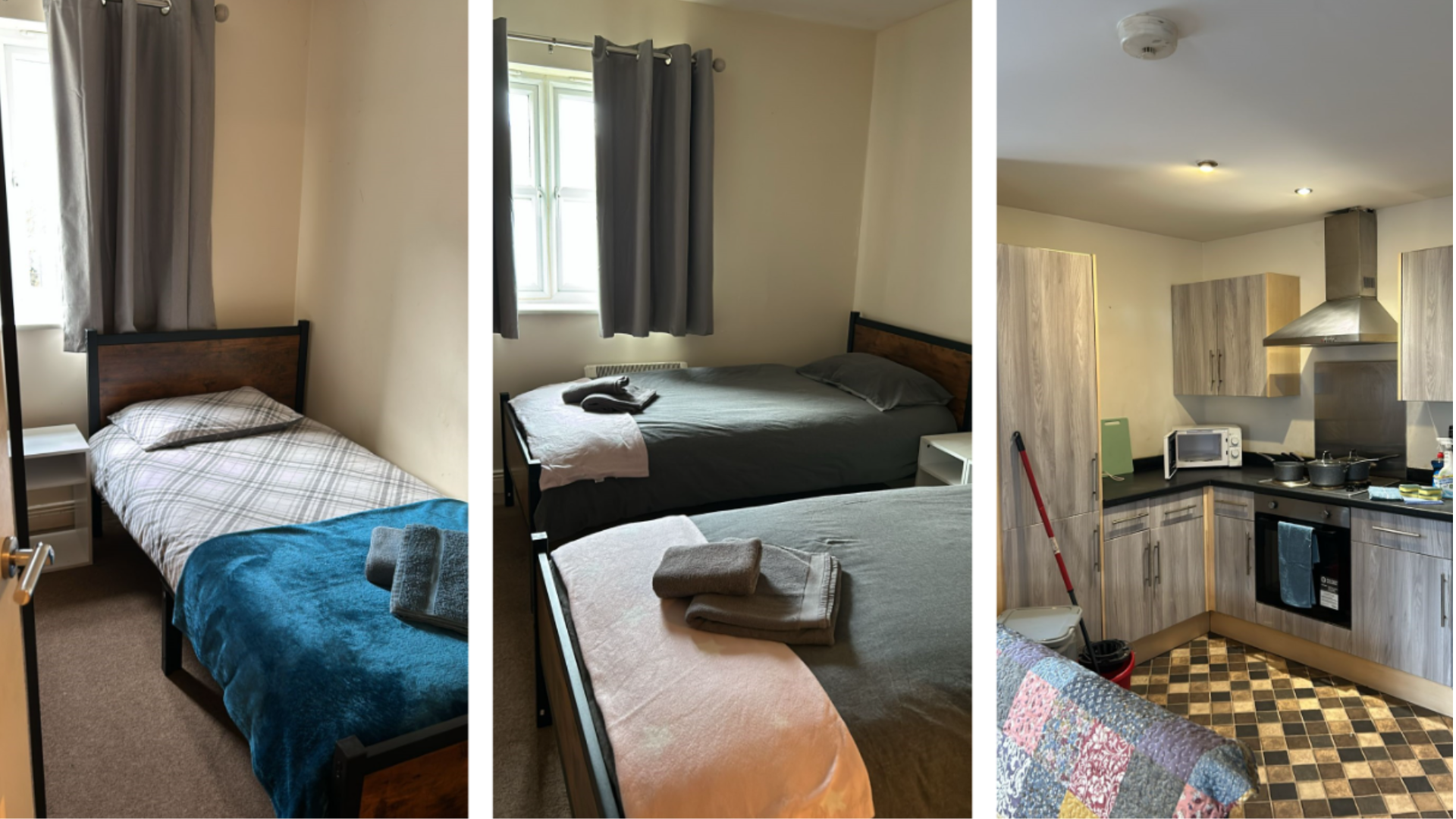Our team turnaround multiple properties a week, often with only hours to spare before the new check-ins. This is a family unit that was turned around with short notice for a mother and daughter in need of safe and clean shelter.

Running Supported Temporary Accommodation vs. Running a Hotel
Providing supported temporary accommodation for homeless or vulnerable individuals may seem vastly different from running a hotel, but in many ways, the two share operational similarities. Both require structured management, hospitality skills, and a commitment to ensuring safe, comfortable stays. However, the purpose and challenges involved set them apart.
Similarities Between Supported Accommodation and Hotels
1. Managing Occupancy & Bookings
Just like hotels, supported accommodation must carefully manage occupancy levels, ensuring rooms are available for those in need. This involves processing referrals, handling check-ins and check-outs, and coordinating placements efficiently – ensuring the referral is in suitable accommodation for their needs (self-contained vs shared, stairs or no stairs, etc)
2. Facilities Management & Maintenance
Both settings require routine maintenance and diligent turnarounds to keep rooms clean, safe, and habitable. Repairs, and adherence to health and safety regulations are essential in ensuring a well-run facility or portfolio.
3. Security & Risk Management
Whether in a hotel or supported accommodation, guest safety is paramount. Staff must monitor the premises, enforce rules, and address any incidents that may arise.
4. Customer Service & Support
Hotels prioritize guest experience, while supported accommodation staff provide essential services, including emotional support and signposting to additional resources, as well as ensuring council requirements are met and the individual is cooperative. In both cases, responsive, empathetic staff make all the difference.
Key Differences: Purpose & Support Services
Short-Term Stays vs. Stability & Rehabilitation
Hotels offer short-term stays for leisure or business travellers, while supported accommodation focuses on providing stability and a pathway towards long-term housing for vulnerable individuals.
Support Services Beyond Shelter
Unlike hotels, supported accommodation includes welfare checks, intervention when required, and pathways to permanent housing.
Guest Expectations & Challenges
Hotel guests expect luxury, convenience, and seamless service, whereas supported accommodation residents may struggle with mental health issues, addiction, or trauma, requiring a more compassionate and patient approach.
Conclusion
While both settings require strong management, security, and hospitality, temporary accommodation is about more than just providing a place to stay—it’s about creating a foundation for long-term change.
By recognizing these similarities and differences, we can continue to improve services for those who need them most, ensuring that supported housing operates efficiently while providing the care and dignity every individual deserves.